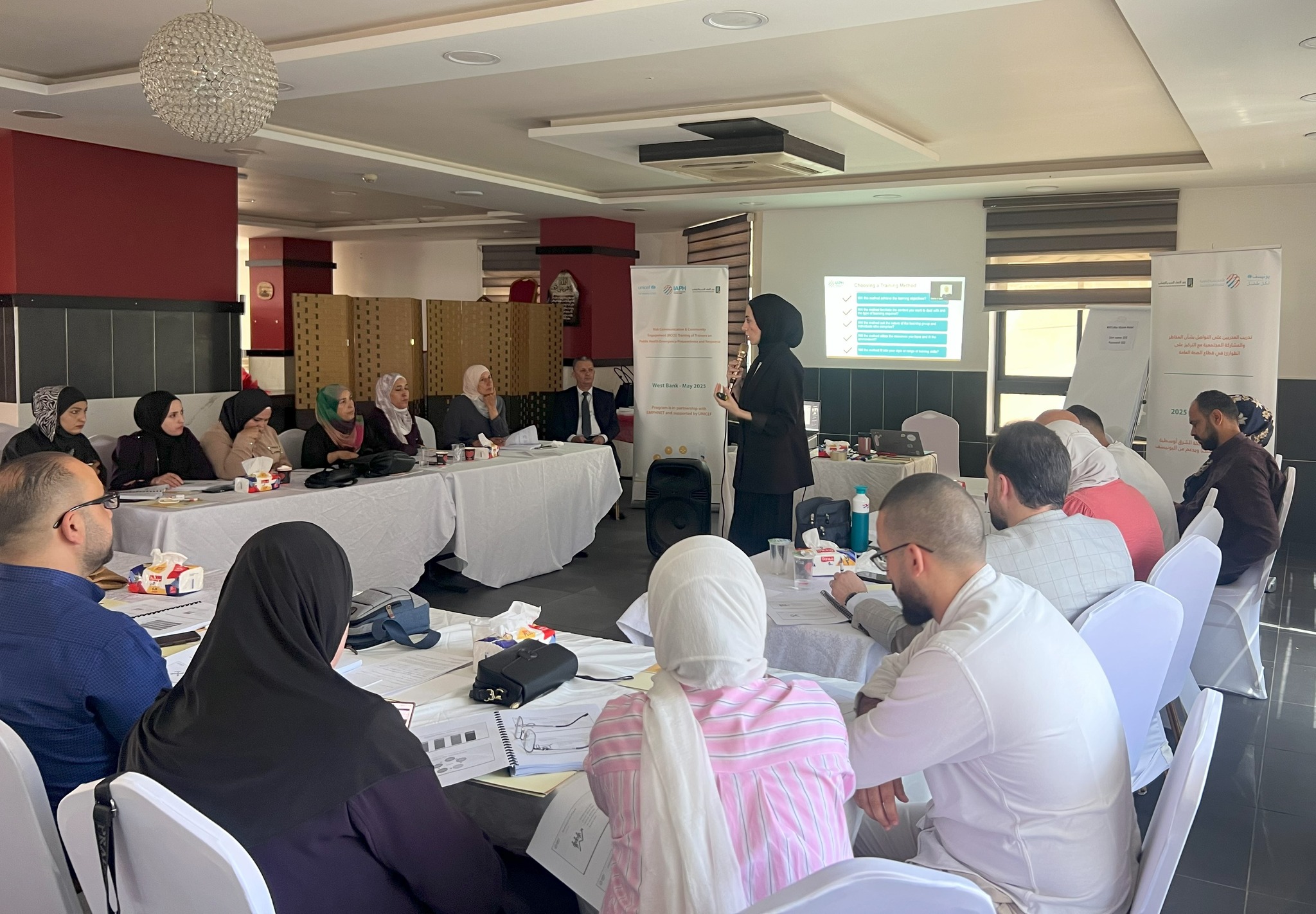Strengthening Palestinian Capacity to Respond to Health Risks and Emergencies

In an effort to enhance Palestine’s public health resilience, the International Academy of Public Health (IAPH), in collaboration with UNICEF and Juzoor for Health and Social Development, conducted a series of Training of Trainers (ToT) workshops on Risk Communication and Community Engagement (RCCE) in Ramallah, Nablus, and Hebron (Khaleel).
Held throughout May, these workshops trained over 60 Palestinian health professionals from public, private, academic, and community sectors, equipping them with the critical skills needed to respond effectively to emergencies. This initiative reflects partners’ commitment to strengthening local capacities in regions facing acute health risks, particularly amid growing humanitarian challenges.
At the heart of these workshops is the recognition that effective communication can save lives. RCCE is not just about sharing information — it’s about building trust, guiding communities through crises, and promoting the behaviors that protect health and well-being. “By equipping Palestinian professionals with practical tools and skills, we are not only strengthening technical capacity but also empowering them to lead their communities through life-threatening emergencies,” said Dr. Deema Al Bakri, Lead Facilitator.
“Risk communication is about more than sharing facts — it’s about making information meaningful and actionable. In emergencies, people need clarity, not confusion. Effective risk communication helps communities understand the situation, trust the response, and take informed action.” said Dr. Yousef Khader, Lead Facilitator
The three-day workshops included blended interactive modules, with case scenarios related to the Palestinian context, and hands-on simulations. Participants explored topics such as managing psychological responses to crises, designing crisis communication plans, countering misinformation, and leveraging media and digital tools to guide public response. Importantly, they also practiced inclusive approaches to community engagement — ensuring that communication strategies address the needs of the most vulnerable.
“True knowledge grows through sharing, and this workshop offered a valuable space to connect, exchange expertise, and foster meaningful collaboration amid challenging times,” said Ms. Kelizaar Fouad Al-Hamamrah, one of the participants.
“These are not just theoretical concepts — they are life-saving skills,” emphasized Dr. Mohamed Nour, Facilitator and RCCE specialist. “When health professionals can communicate clearly and mobilize their communities, they can help prevent panic, encourage protective behaviors, and ultimately save lives during emergencies.”
Accredited by the Agency for Public Health Education Accreditation (APHEA), the workshops offer participants a valuable professional development credential. But beyond the certificates, the initiative’s true value lies in its long-term impact: strengthening Palestine’s ability to prepare for, respond to, and recover from health emergencies.
As IAPH continues to expand its regional support, these workshops stand as a testament to the vital role of RCCE — a cornerstone of any effective health emergency response — and the power of international collaboration in building stronger, more resilient health systems. These workshops are also the first phase of a broader initiative that will be followed by cascade trainings, aiming to reach and build the capacities of approximately 600 health professionals.